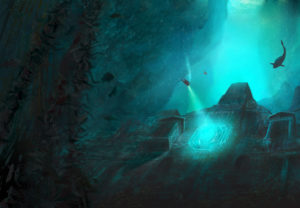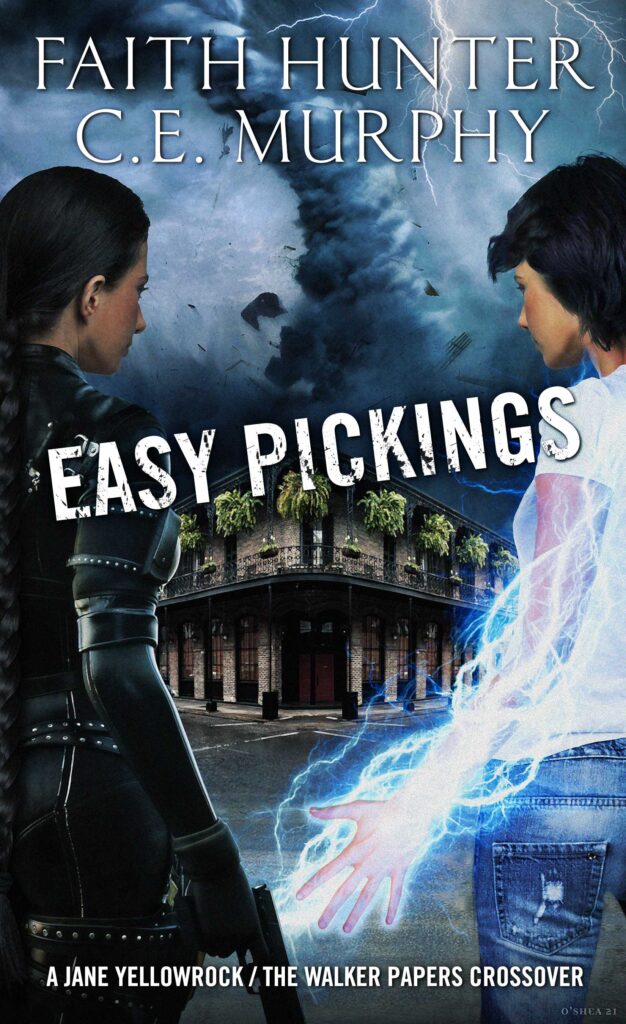Morning Y’all,
Another great post on anthologies by Joshua,
ENJOY!
Faith
 This is the fourth of a series of blog posts that show how I create the anthologies for Zombies Need Brains, the small press that I founded in order to produce anthologies. It’s basically a behind-the-scenes look at the process, which will be covered in multiple parts. Obviously, this is only how I produce an anthology and there may be other roads to follow in order to produce one. Keep that in mind.
This is the fourth of a series of blog posts that show how I create the anthologies for Zombies Need Brains, the small press that I founded in order to produce anthologies. It’s basically a behind-the-scenes look at the process, which will be covered in multiple parts. Obviously, this is only how I produce an anthology and there may be other roads to follow in order to produce one. Keep that in mind.
This part of the series focuses on reading through the slush pile generated by the open call that Zombies Need Brains does for all of our recent anthologies. If you aren’t doing an open call for submissions, you can probably skip to the next part of the series.
ZNB firmly believes that sometimes the best stories for a particular theme will come from an unknown source and we want to support finding new and interesting voices in the SF&F field. Because of this, we run an open call for submissions for each of our anthologies, so that anyone with a story that fits the theme can submit and possibly end up in the anthology. I believe every anthology we’ve produced has contained at least one story from an unknown, unpublished author. Not because we specifically searched an unpublished author’s story out, but because they rose to the top of the slush pile on their own merits.
If you’re putting together an anthology, I strongly suggest that you have an open call for that anthology. But be aware that the slush pile has its own positives and negatives. The positive is that you’ll have a ton of stories to choose from, which means you’re going to get the best possible stories for your anthology. The negative is that you’ll have a ton of stories to choose from, which means you’re going to have to READ all of those stories to find the best possible ones for your anthology.
Depending on how many submissions you get, reading the slush pile can be time-consuming and often painful. But it’s worth it in the end. At this point, ZNB doesn’t receive so many stories with its open calls that they are impossible to get through. I personally read all of the stories, and I typically read them all the way through. Most editors reading slush piles don’t do this though. Writers have to capture the editor’s attention within the first page or two, give them a reason to keep reading to the end. I usually know within the first page or two whether or not we’ll be seriously considering the story for the anthology or not, but I keep reading (sometimes just skimming) to the end to see if there’s something there to change my mind. Only in extreme cases, where the writing is horrible or the story is obviously completely off theme, do I stop reading before I reach the end. Why do I read to the end? Because sometimes there’s a story that doesn’t really start until about halfway through, and then suddenly it clicks and gets good. If the writer just cut that first half off, maybe worked in anything relevant in that first half into the second somehow, then you’d have a stellar story. I don’t want to miss out on a good story because of that.
However, I can only do this because we aren’t being completely overwhelmed with stories. With each new anthology we produce, the number of submissions continues to grow. I expect that soon I’ll have to give up reading all stories to the end, simply because there won’t be enough time. At some point in the future, I may even have to rely on some slush pile readers to wade through it all and send me only what they feel are the best stories, so I may only end up reading part of this slush pile. As an anthologist, you may have to do this as well. You may want to do this anyway, regardless of how many submissions you get, simply so you can focus on other aspects of the process. This is simply a reality of open call submissions and it emphasizes that, when a writer submits a story, they MUST make it the best possible story you can before submission and they MUST have a strong opening.
For the writers out there: In that first page, perhaps even first paragraph, give the editor the “cool factor” of your story. Give them a strong character and strong voice. Give them a unique setting. Give them a hook to keep the editor reading. And please, please, please give them a story that actually fits the theme of the anthology! I’d estimate that at least 20% of all submissions I read for a particular anthology for ZNB don’t fit the theme—aren’t even CLOSE to the theme.
So slush piles have advantages and disadvantages, but I still strongly believe in them for finding the best stories for an anthology. If you have a story that fits, revise it, then revise it again, make it the strongest story you possibly can, and then submit it. If you’re an editor, prepare yourself for some heavy duty reading, some excruciating reading perhaps, but also prepare yourself for discovering that gem buried in the slush pile that makes your anthology shine.
At this point in the process of creating an anthology, you have all of the stories that you want to use, whether they came from invited authors or the slush pile. What’s next? Well, the actual job: editing. That’s the next focus in this series.
And now a word from our sponsor:
*****************
Zombies Need Brains is currently running a Kickstarter (at <a href=”https://www.kickstarter.com/projects/543968884/robots-water-and-death-anthologies?token=017aef99″>https://www.kickstarter.com/projects/543968884/robots-water-and-death-anthologies?token=017aef99</a>) to fund THREE new SF&F anthologies and we need your help! We can’t produce anthologies unless we can get the funding to pay the authors, the cover artists, the print and ebook designers, and the printers. That’s where the Kickstarter comes in, and you, THE FANS! We’ve got a ton of stunning anchor authors on board, including NY Times bestselling authors and award winners. And we’ve got a ton of great reward levels, such as tuckerizations, signed copies of books by your favorite authors, and more! Our themes for this current Kickstarter are:
ALL HAIL OUR ROBOT CONQUERORS!: “Danger, Will Robinson! Danger!” 50s and 60s television shows and movies were replete with clunky robots with bulbous arms and heads, blinking lights, and a staggered, ponderous walk, like Robby the Robot, GORT, and the Daleks. With a touch of nostalgia and a little tongue-in-cheek humor, this anthology will present invasions of robot conquerors—or well-meaning robot companions—rooted in those 50s and 60s ideals of the robotic vision of the future. Edited by Patricia Bray & Joshua Palmati
SUBMERGED: From the very earliest days of SFF, when Jules Verne wrote 20,000 Leagues Under the Sea, the depths of the oceans have always intrigued us. Three quarters of our planet teems with creatures beyond our imagining, and terrors we cannot see. Kraken, Leviathan, Cthulu – what other mysteries and monsters lurk in the currents of the wet and dark? SUBMERGED will explore the depths beneath the surface, whether it be on brand new planets yet to be explored, apocalyptic Earths, or fantasy settings from our wildest dreams. So come join us and explore unfathomable trenches, underwater volcanoes, and abyssal plains. Take the plunge . . . into the Deep End! Edited by S.C. Butler & Joshua Palmatier.
THE DEATH OF ALL THINGS: Death and taxes: the universal themes. Or, nearly. Not all cultures pay taxes, but all pay the reaper. Acknowledging that nobody will ever beat Sir Terry Pratchett for his depiction of Death, we believe there are more stories to tell, exploring the realm and character of death: tragic, humorous, and all the shades in-between. Edited by Laura Anne Gilman & Kat Richardson.
If you’d like to help fund these anthologies, swing on by the Kickstarter at <a href=”https://www.kickstarter.com/projects/543968884/robots-water-and-death-anthologies?token=017aef99″>https://www.kickstarter.com/projects/543968884/robots-water-and-death-anthologies?token=017aef99</a>! And share the Kickstarter with your friends, family, and total strangers! We need more SF&F anthologies!

